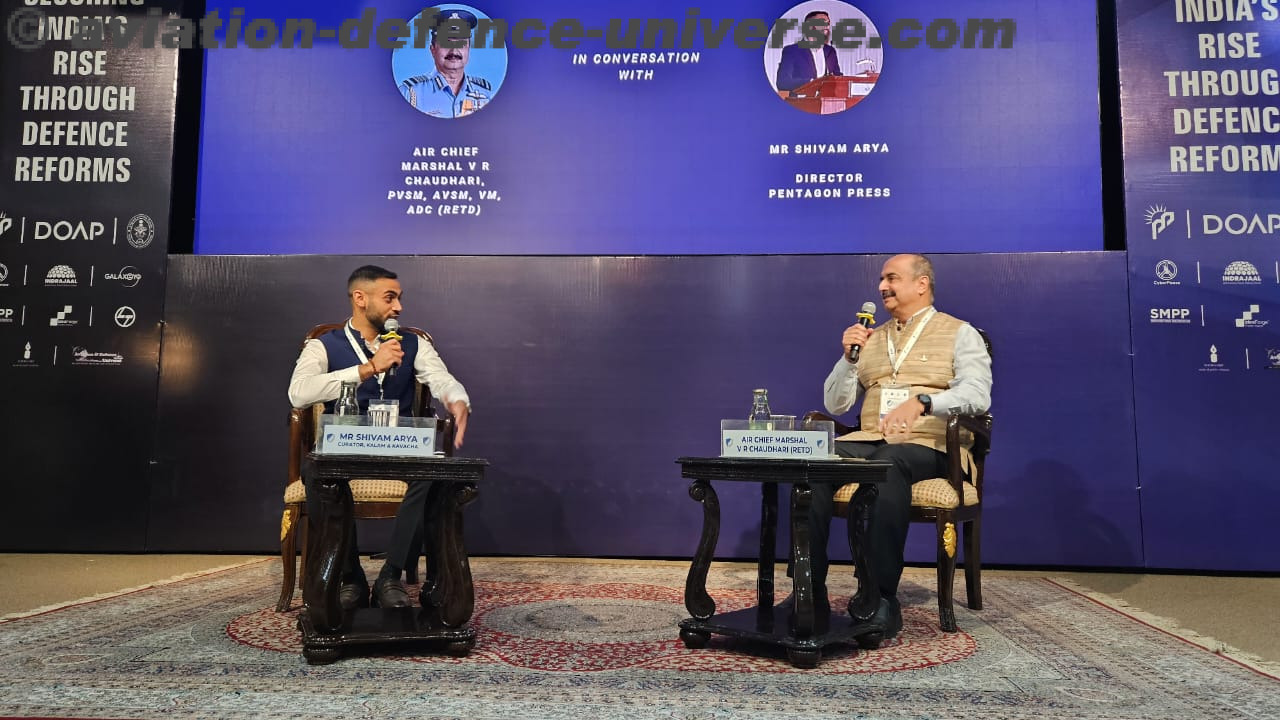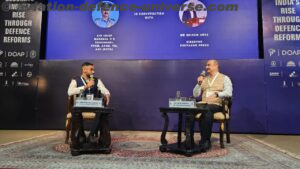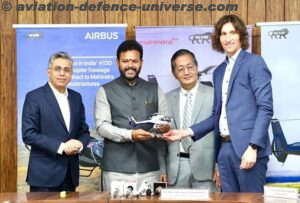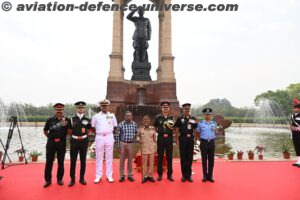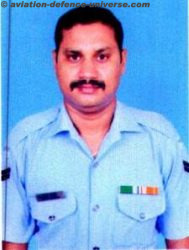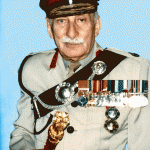 New Delhi. 03 April. Today Sam Bahadur would have turned 109. A soldier the nations loves to love and the enemy loves to hate but both respect and salute Field Marshal Shamsherji Hormusji Framji Jamshedji Manekshaw, MC the Indian military leader who was the first Indian Army officer to be promoted to the five-star rank of field marshal. His distinguished military career spanned four decades and five wars, beginning with service in the British Indian Army in World War II. Manekshaw rose to become the 8th Chief of Army Staff of the Indian Army in 1969 and under his command, Indian forces conducted victorious campaigns against Pakistan in the Indo-Pakistan War of 1971 that led to the liberation of Bangladesh in December 1971.
New Delhi. 03 April. Today Sam Bahadur would have turned 109. A soldier the nations loves to love and the enemy loves to hate but both respect and salute Field Marshal Shamsherji Hormusji Framji Jamshedji Manekshaw, MC the Indian military leader who was the first Indian Army officer to be promoted to the five-star rank of field marshal. His distinguished military career spanned four decades and five wars, beginning with service in the British Indian Army in World War II. Manekshaw rose to become the 8th Chief of Army Staff of the Indian Army in 1969 and under his command, Indian forces conducted victorious campaigns against Pakistan in the Indo-Pakistan War of 1971 that led to the liberation of Bangladesh in December 1971.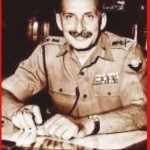 who moved to Punjab from the small town of Valsad on the Gujarat coast. After completing his schooling in Punjab and Sherwood College, Nainital, and achieving a distinction in the School Certificate examination of the Cambridge Board at the age of 15, he asked his father to send him to London to become a gynecologist. When his father refused to send him until he was older, in an act of rebellion, Manekshaw took the entrance examination for enrollment into the Indian Military Academy (IMA) at Dehradun. He was successful and as a result became part of the first intake of 40 cadets on 1 October 1932. He graduated from the IMA on 4 February 1934 and was commissioned as a second lieutenant in the British Indian Army (which later became the Indian Army after Independence).
who moved to Punjab from the small town of Valsad on the Gujarat coast. After completing his schooling in Punjab and Sherwood College, Nainital, and achieving a distinction in the School Certificate examination of the Cambridge Board at the age of 15, he asked his father to send him to London to become a gynecologist. When his father refused to send him until he was older, in an act of rebellion, Manekshaw took the entrance examination for enrollment into the Indian Military Academy (IMA) at Dehradun. He was successful and as a result became part of the first intake of 40 cadets on 1 October 1932. He graduated from the IMA on 4 February 1934 and was commissioned as a second lieutenant in the British Indian Army (which later became the Indian Army after Independence).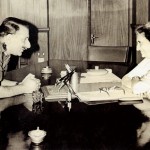 After taking over as chief of army staff, at a function on 8 June 1969 to mark the centenary of Sherwood College, Manekshaw recalled that his years at the college had prepared him for war as they had taught him to live alone and independently, to fight without relent, tolerate hunger for long periods and to hate his enemy.
After taking over as chief of army staff, at a function on 8 June 1969 to mark the centenary of Sherwood College, Manekshaw recalled that his years at the college had prepared him for war as they had taught him to live alone and independently, to fight without relent, tolerate hunger for long periods and to hate his enemy.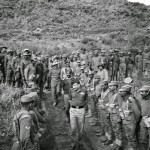 Scots, a British battalion, and then later posted to the 4th Battalion, 12th Frontier Force Regiment, commonly known as the 54th Sikhs. During World War II, the then-Captain Manekshaw saw action in Burma in the 1942 campaign on the Sittaung River with the 4/12 Frontier Force Regiment, and had the rare distinction of being honoured for his bravery on the battlefield.
Scots, a British battalion, and then later posted to the 4th Battalion, 12th Frontier Force Regiment, commonly known as the 54th Sikhs. During World War II, the then-Captain Manekshaw saw action in Burma in the 1942 campaign on the Sittaung River with the 4/12 Frontier Force Regiment, and had the rare distinction of being honoured for his bravery on the battlefield.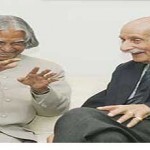 Upon the Partition of India in 1947, his parent unit – 12th Frontier Force Regiment – became part of the Pakistan Army (rechristened Frontier Force Regiment), and so Manekshaw was reassigned to the 16th Punjab Regiment, before being posted to the 3rd Battalion, 5th Gorkha Rifles, which he was detailed to command. The tumultuous events of partition required Manekshaw’s retention in army headquarters as a lieutenant colonel in the Military Operations Directorate, though, and because of this he subsequently missed his chance to command an infantry battalion as he was later promoted to brigadier, becoming the first Indian Director of Military Operations. The appointment of Director of Military Operations was upgraded first to major general and later to lieutenant general and is now termed Director General Military Operations (DGMO).
Upon the Partition of India in 1947, his parent unit – 12th Frontier Force Regiment – became part of the Pakistan Army (rechristened Frontier Force Regiment), and so Manekshaw was reassigned to the 16th Punjab Regiment, before being posted to the 3rd Battalion, 5th Gorkha Rifles, which he was detailed to command. The tumultuous events of partition required Manekshaw’s retention in army headquarters as a lieutenant colonel in the Military Operations Directorate, though, and because of this he subsequently missed his chance to command an infantry battalion as he was later promoted to brigadier, becoming the first Indian Director of Military Operations. The appointment of Director of Military Operations was upgraded first to major general and later to lieutenant general and is now termed Director General Military Operations (DGMO).and administration, and later was able put his battle skills to use during operations in Jammu & Kashmir in 1947–48. After commanding an infantry brigade, he was posted to the Infantry School at Mhow as the school’s commandant and also became the colonel of 8 Gorkha Rifles (which became his new regiment, since his original parent regiment, the 12th Frontier Force Regiment, had become part of the new Pakistan Army at partition) and 61st Cavalry. Manekshaw then commanded a division in Jammu and Kashmir. A stint at the Defence Services Staff College followed where he served as the commandant. It was here that his outspoken frankness got him into trouble with the then Defence Minister, V. K. Krishna Menon. A court of inquiry was ordered against him. The court, presided over by the then-Western Army Commander, Lieutenant General Daulet Singh, exonerated Manekshaw. Before a formal ‘no case’ could be announced, war with China broke out. Manekshaw was then promoted to lieutenant general and moved to Tezpur to take over IV Corps as its GOC.
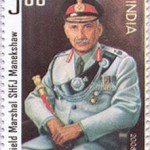 Towards the end of April 1971, Indira Gandhi, who was Prime Minister of India at that time, asked Manekshaw if he was ready to go to war with Pakistan. Manekshaw refused, saying that his single armoured division and two infantry divisions were deployed elsewhere, that only 13 of his 189 tanks were fit to fight, and that they would be competing for rail carriage with the grain harvest at that point of time. He also pointed out that the Himalayan passes would soon open up, with the forthcoming monsoon in East Pakistan, which would result in heavy flooding.When Indira Gandhi asked the cabinet to leave the room and the chief to stay, he offered to resign. She declined to accept it, but sought his advice. He then said he could guarantee victory if she would allow him to prepare for the conflict on his terms, and set a date for it. These were acceded to by the Prime Minister.
Towards the end of April 1971, Indira Gandhi, who was Prime Minister of India at that time, asked Manekshaw if he was ready to go to war with Pakistan. Manekshaw refused, saying that his single armoured division and two infantry divisions were deployed elsewhere, that only 13 of his 189 tanks were fit to fight, and that they would be competing for rail carriage with the grain harvest at that point of time. He also pointed out that the Himalayan passes would soon open up, with the forthcoming monsoon in East Pakistan, which would result in heavy flooding.When Indira Gandhi asked the cabinet to leave the room and the chief to stay, he offered to resign. She declined to accept it, but sought his advice. He then said he could guarantee victory if she would allow him to prepare for the conflict on his terms, and set a date for it. These were acceded to by the Prime Minister.











